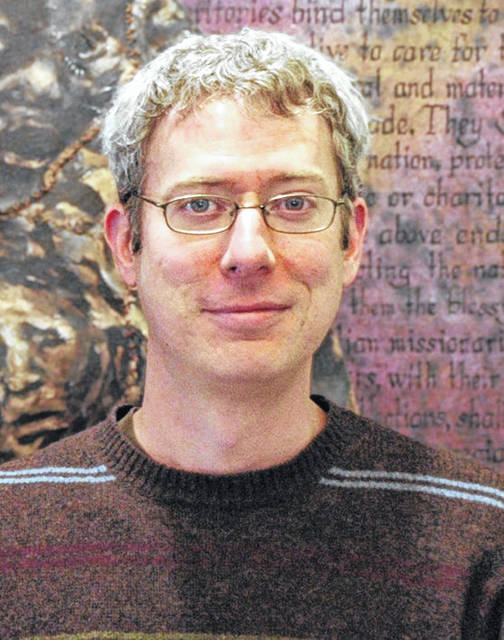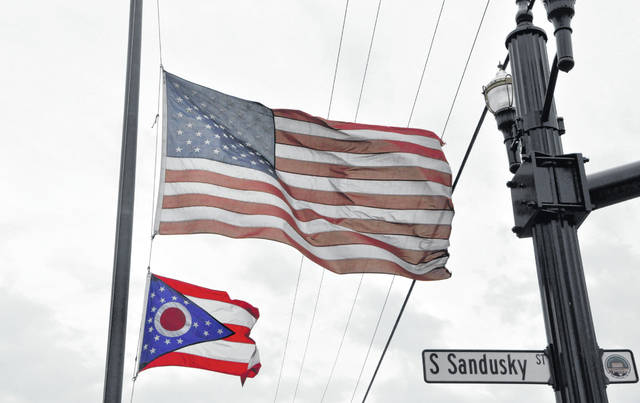

Factors ranging from style of governance to geography can impact how nations react to a global pandemic, an Ohio Wesleyan University professor said Wednesday.
Jim Franklin, professor of politics and government, said he specializes in comparative politics, making him an expert on the subject of his online talk, “How are Countries Responding to COVID-19?”
He said experts in health fields are telling us to test, trace and isolate.
“All of us have gotten a crash course in public health policy as a result of this (the novel coronavirus),” Franklin said.
However, politics also play a part in those policy decisions, weighing health against economic concerns. Some political systems are more capable of implementing its policies than others, he said, and the use of executive power, amount of politics, and level of corruption all have an impact on the response.
Franklin first discussed the country of origin for COVID-19, China.
“Patients with a mysterious form of pneumonia were appearing in Wuhan by mid-December 2019. It spread rapidly, infecting over 80,000 and killing over 4,000,” Franklin said, adding those were official statistics and may actually be 40,000. “On Jan. 23, 2020, a drastic lockdown was implemented in Wuhan. COVID-19 cases peaked on Feb. 12 and declined substantially by early March.”
This was “a very harsh policy, but it did work,” he said. The Chinese Communist Party has declared this is a victory and has since made propaganda videos.
Yet there was a critical delay in China. “Wuhan health officials were told of a new coronavirus on Dec. 26. On Dec. 30, Li Wenliang, a doctor at Wuhan Central Hospital, warned of outbreak in an online post. He was reprimanded for spreading rumors.” He later died of the disease.
“Officials downplayed or covered up the information until Jan. 21, when the People’s Daily finally mentioned the epidemic,” Franklin said. Meanwhile, thousands had traveled out from Wuhan on airplanes. “This tendency to hide negative news is typical in authoritarian regimes. There’s a long history of this.”
The island nation of Taiwan, next to China, was expected to have the second-most number of cases. Remarkably, though, in a country of 23 million people, Franklin said Taiwan had 439 cases of COVID-19 and six deaths as of May 6. This was despite not being a member of the United Nations or the World Health Organization.
That’s because Taiwan took aggressive action towards COVID, containing it before China had even started its efforts. In response to the SARS outbreak more than a decade earlier, Taiwan had already established a National Health Command Center and stockpiled supplies.
“Beginning on Dec. 31, 2019, Taiwanese officials began boarding arriving planes to screen passengers who had been to Wuhan,” Franklin said. “They integrated travel and medical information to help find people who might have COVID-19. They tracked cell phones to make sure people are staying in quarantine and for contact tracing. Local officials checked in on people in quarantine and provided them with food and medicine.”
Franklin said that although there was some infringement of civil liberties, “people seemed to accept that to keep them healthy.”
A hypothesis suggests that fighting a pandemic requires a “high state capacity,” which Franklin said consists of “keeping law and order, defending against external threats, providing infrastructure and other goods and services.” However, a low-capacity nation like the Central African Republic has no deaths; while high-capacity countries such as the United States and United Kingdom “have been overwhelmed by COVID-19. This is where political decisions by leaders and political attitudes and public behavior are important.”
He gave a musical analogy: “You can have the best drum kit in the world, but if you don’t know how to play, it’s not going to sound good.”
In response to questions from the virtual audience, Franklin said that if the U.S. had used the approach of Taiwan and South Korea to act swiftly, we may not have had to shut down our economy. In addition, “we need to build up testing capacity” so “you can do more specific quarantines.” On the other hand, “legally, can we force people to download an app (for tracking movement)? I know people would challenge that. There’s going to be holes in those efforts. Majorities support shutdowns, but there is a vocal opposition. Will this lead to greater unity or division? Will there be more barriers built? It could go in either direction.”
Wednesday’s virtual class concluded week three of a 10-week, free online course called “We’re in This Together: An Interdisciplinary Exploration of the Coronavirus Pandemic.” The course is open to students and the public alike.
For more information about Ohio Wesleyan’s “We’re in This Together” course, visit www.owu.edu/COVIDclass.



